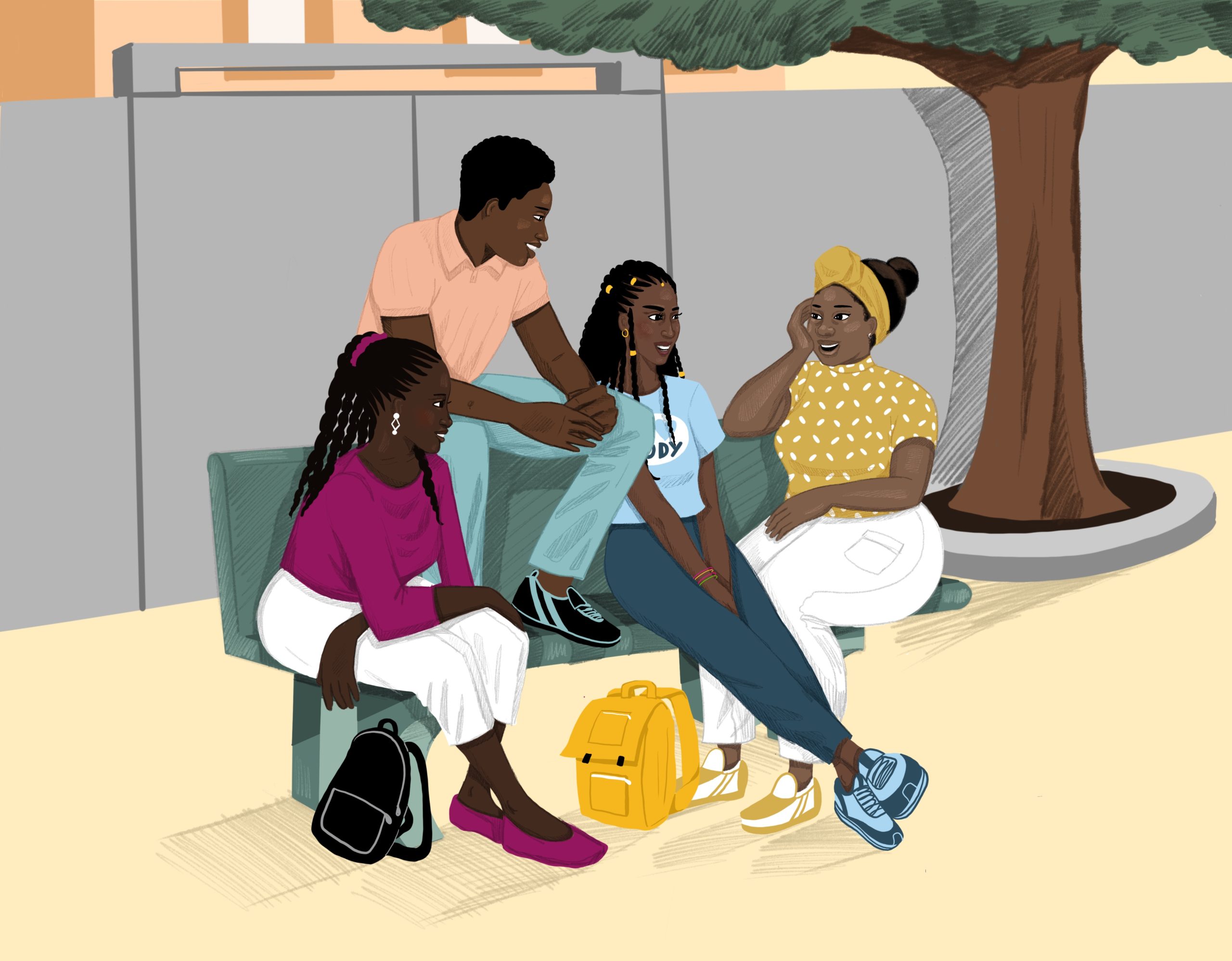Menstruation and traditions
In many cultures, there are beliefs about menstruation. Menstrual blood is the subject of many superstitions and is sometimes considered taboo, impure or dangerous.
It is possible that such beliefs exist in your culture and that you are unable to take part in community life. For example, you may not be able to cook, look after livestock or help with the harvest. Men may also think that the blood from your periods is dangerous for them.
Origins of beliefs around menstruation
Originally, these beliefs were made for you and with the intention of preserving you. In many cultures, these beliefs are thought to be a way of allowing women to rest during this period when they have less energy.
I have to stay at home during my period
If you have to stay at home, take this time to do the things you love and the things you never have time to do. Of course, if you feel unsafe or unwell, either physically or psychologically, talk to someone you trust or a healthcare professional.
If you feel sad or disappointed about not being able to go to school during this time, try asking your teacher to give you some extra practice. Take the opportunity to revise your lessons or continue learning them at home. You can also use the time to read lots of books if there’s good library near you.
Menstruation is not contagious
There are also myths about girls being contagious to other girls during their menstruation. In reality, every girl gets her period when her body decides. Menstruation is a sign that your body is working beautifully. If you help another girl who’s having her period, she’ll help you when you need it.
Your menstrual blood is a sign of good health and is completely normal.
During your period, the priority is to take care of yourself, listen to your body and rest as much as you can.
During her period, as at any phase of the cycle, a girl can approach, talk to, greet or even shake hands with a boy without getting pregnant. To get pregnant, you must have sexual intercourse (i.e. the man’s sex must enter the woman’s). You can continue to spend time with your boy friends. However, as they get older, boys become more and more interested in girls and may develop sexual desires. That’s what you have to watch out for.
It’s my body, I decide!
Remember that no-one has the right to touch your body without your permission. You have the right to say NO.
If you’re in a situation where you don’t know what to do, talk to someone you trust or contact Weerwi’s midwife partners Lydia and Adama.
Sources : Jack Parker, Aïssatou Ndahté Cisse & Toubibadakar.



